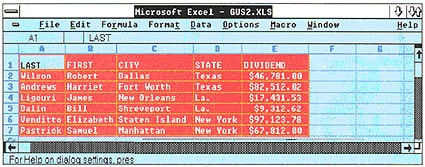Twitter’s User-Generated Disruptive Innovation

In the late 1980s, I had heard about spreadsheets (such as VisiCalc and Lotus 1-2-3). I had a general idea of what they were for (“what-if” calculations) but I didn’t have a clear model of how I myself would use it. I had the chance to sit down and try Excel. After it launched, I just stared blankly at the empty grid. I couldn’t figure out what to do with it. And so I left it alone for many, many years. Now it’s one of my regular tools, but at that time I didn’t have the need to organize columns of data, or an application built upon the platform to address any need I might have, or the mental model to allow me to customize the platform to suit any need I might have.
I think of Twitter as an analog. Almost two years ago I wrote about my experience with Twitter.
I finally started using it and I’m not sure I like it.
…
I think it’s a really powerful idea, it’s an impactful side effect of some simple technologies like putting up your pictures on a website. It starts to evolve well-formed social interactions like party chat.Twitter takes that behavior and blows it up. The side effect is now the main effect (and no doubt tons of new side effects are created).
And I don’t like using Twitter. It makes me feel lonely and isolated. I don’t know what most people are talking about, I sometimes feel bad I’m not included in their conferences, travels, adventures, dining. Maybe I’ve chosen the wrong people to follow, maybe it’s not the same people to Twitter with that I would LinkIn with. I don’t have a posse, a regular gang. I have social relationships with colleagues, but we’re not in each other’s lives in any sort of deep way.
I don’t dismiss or blame Twitter; I may find the experience evolves over time, or I may simply bail. It’s always interesting to introduce new layers of interface onto my social interactions and see what the impact is.
I’d love to hear from others how they are using Twitter and of course how I might start using Twitter.
I did abandon Twitter for a long time, and then came back to it. There’s more of a critical mass of people I know involved; there’s more evolved social norms around responding and interacting; I’ve started posting more non-lame stuff. When significant news events happen (Mumbai shootings, plane crashes), Twitter is the place I know to go to find out what’s going on instantly. I’ve had the experience of being involved in a massive-dialog-like exchange during election events and conference sessions.
I wrote before about ComcastCares, a Comcast VP who decided to respond to customer complaints on Twitter. This has made a lot of people very excited about Comcast and Twitter, although I maintain it reveals the tremendous failings in Comcast’s default customer support infrastructure (I did make use of the Twitter support after being frustrated with the phone support recently, and was mostly satisfied). Meanwhile, Wired points out that this effort is driving internal change at Comcast, and while the public isn’t seeing the results yet, this is looks to be a significant side effect of Twitter adoption.
Lately when I tweet about a brand, I will quickly hear back from someone associated with that brand, offering to troubleshoot for me (examples here and here). That induces a tremendous feeling of being-listened-to (how come there’s no word for that feeling in English?), especially when my intention was to vent or share, not to seek help.
There’s an important network effect here, but that’s not the only disruptive aspect. Users of Twitter continue to find new applications that are not inherently obvious in this minimally functional service: type up to 140 characters and people can see it on their phones or on the web.
For more, see David Pogue’s latest column where he describes the still-evolving social norms
One guy took me to task for asking “dopey questions.” Others criticized me for various infractions, like not following enough other people, writing too much about nontech topics or sending too many or too few messages.
and offers a set of hints for using Twitter including my favorite: USE IT HOWEVER YOU LIKE.
And to everyone that found this post on Twitter: hi!